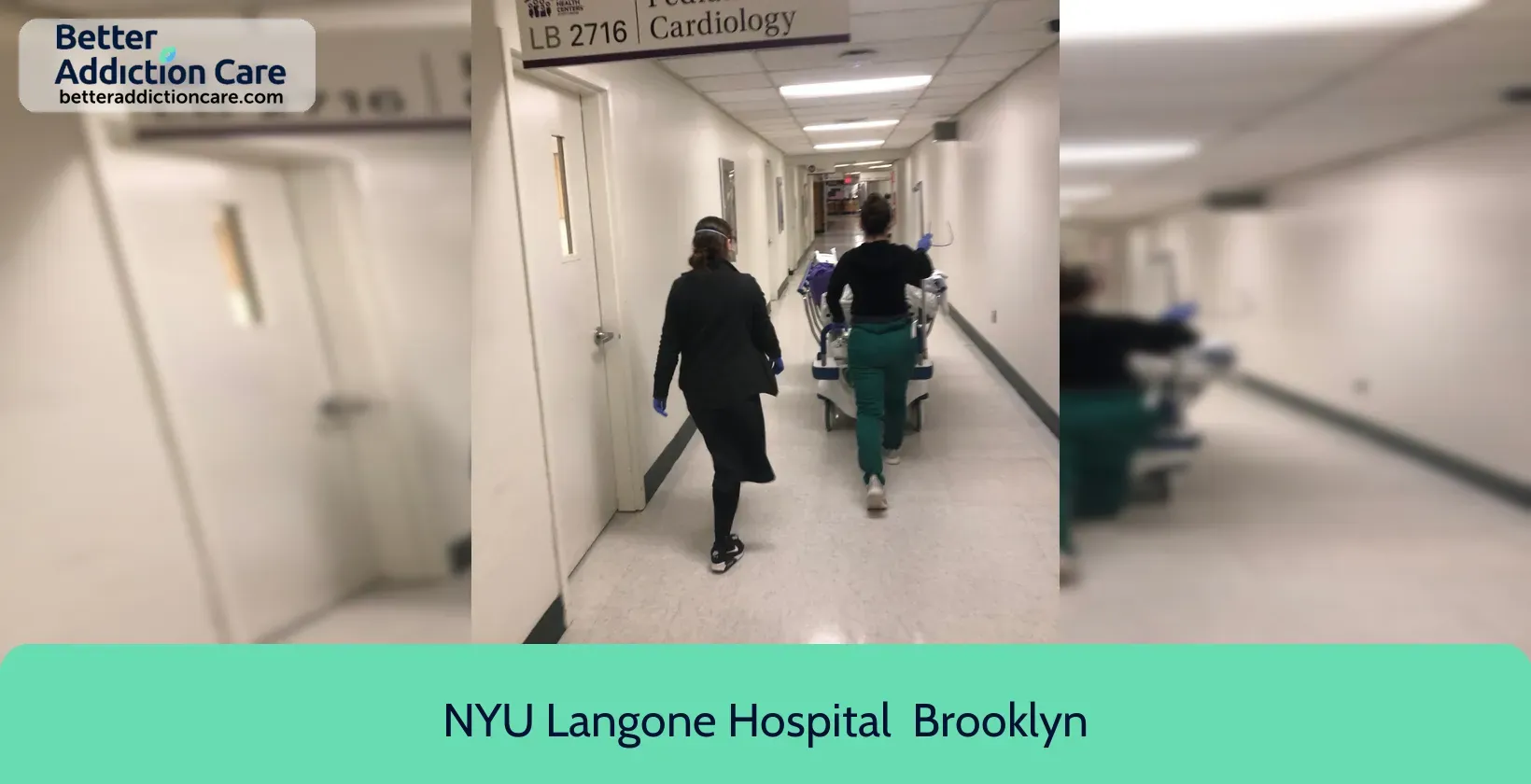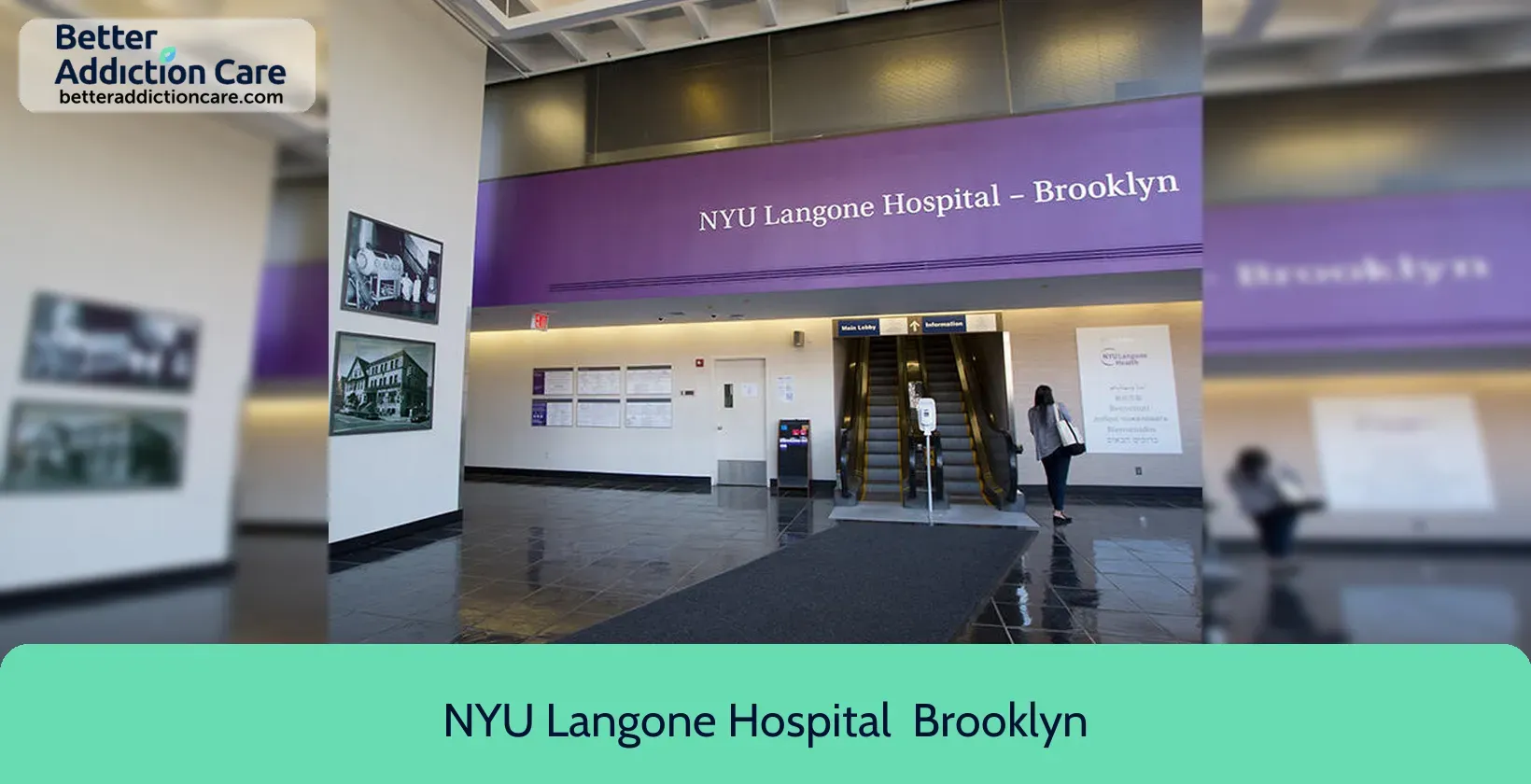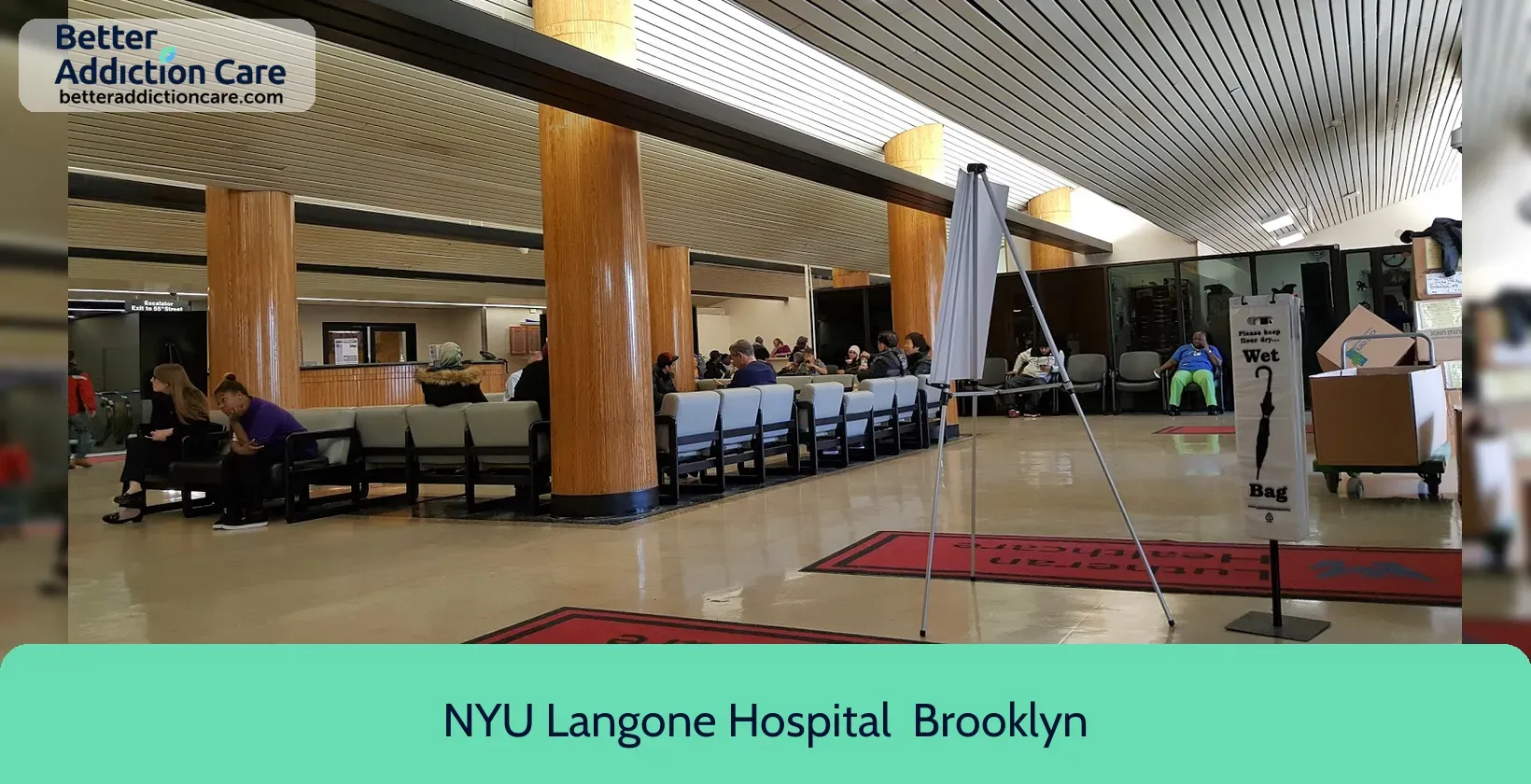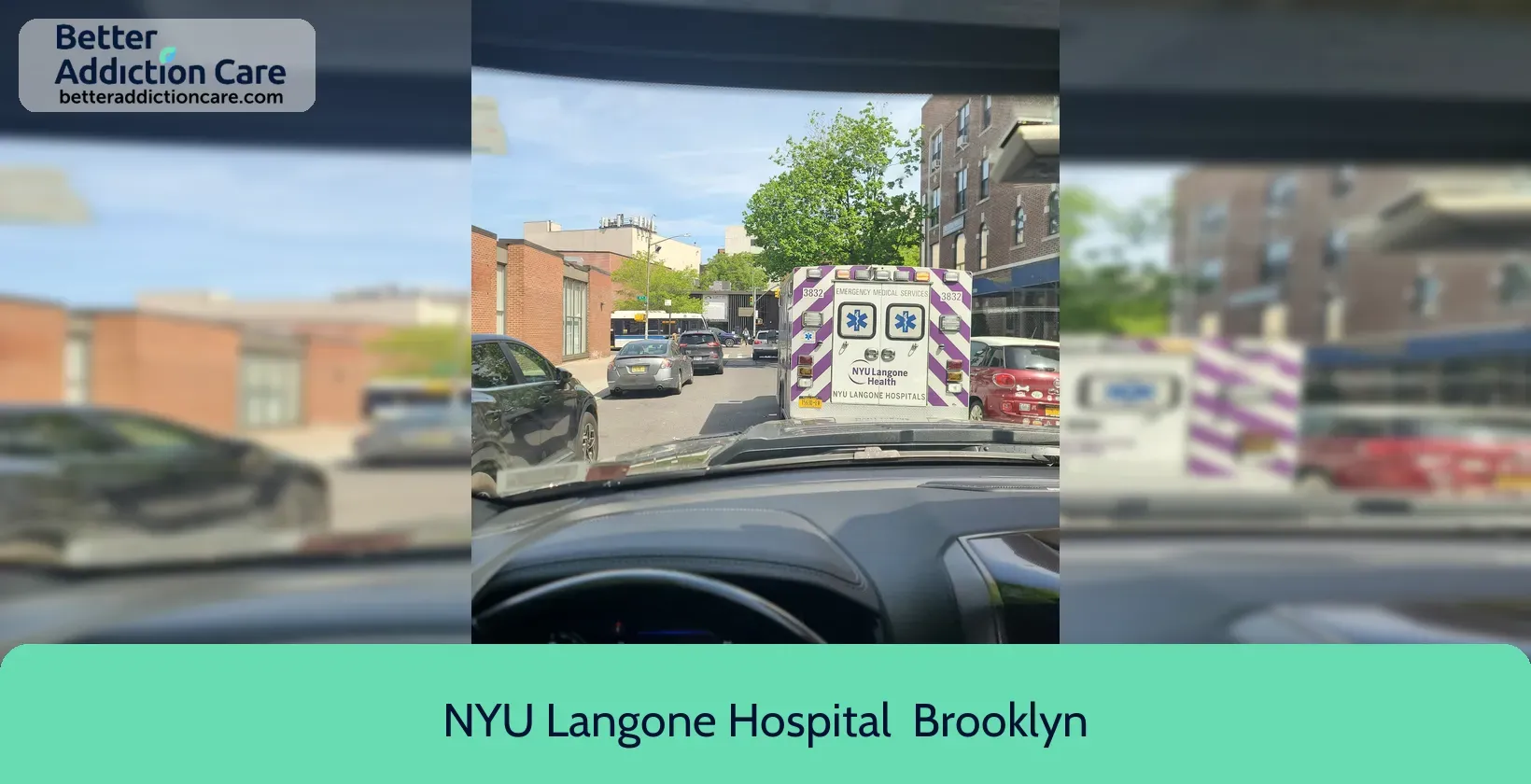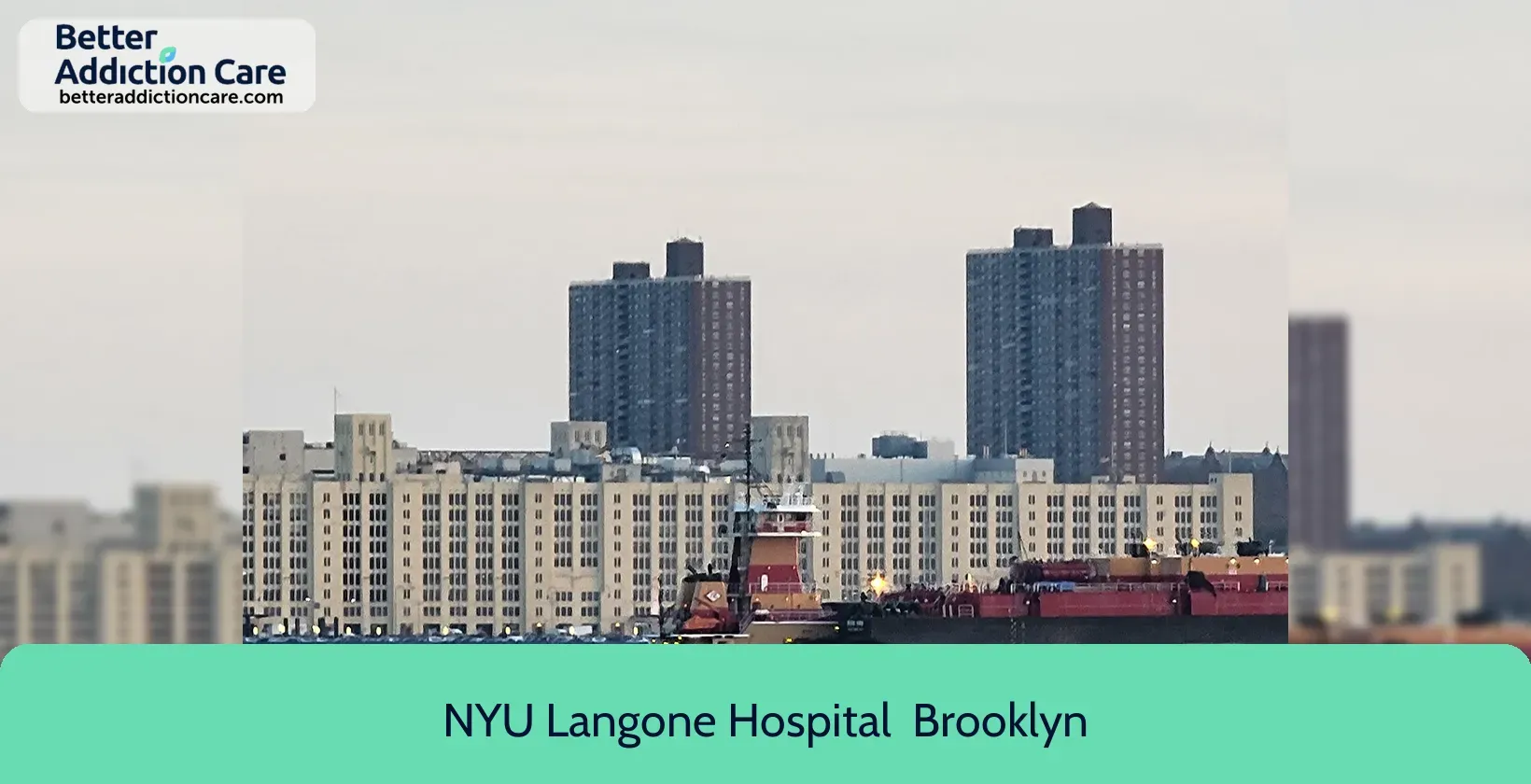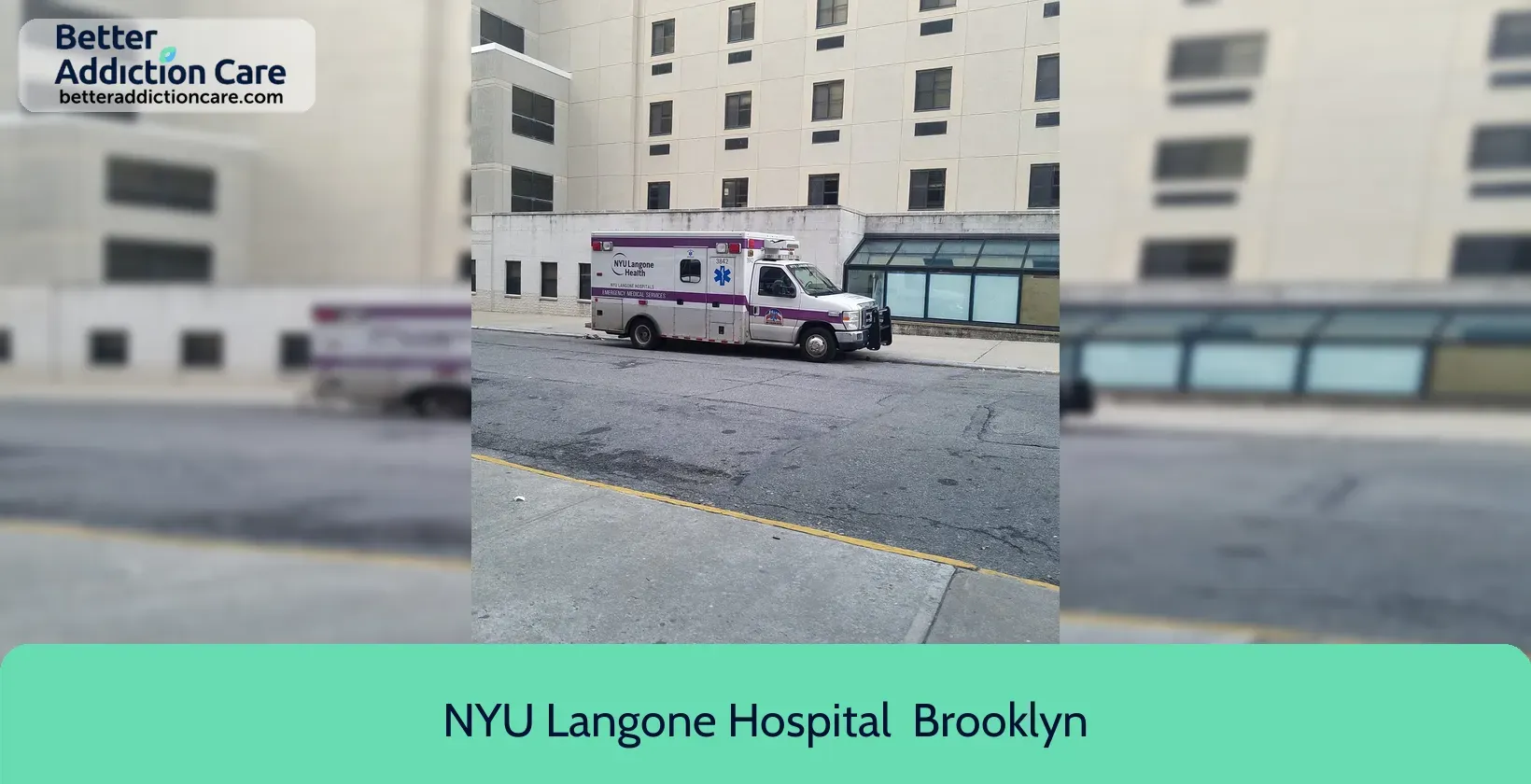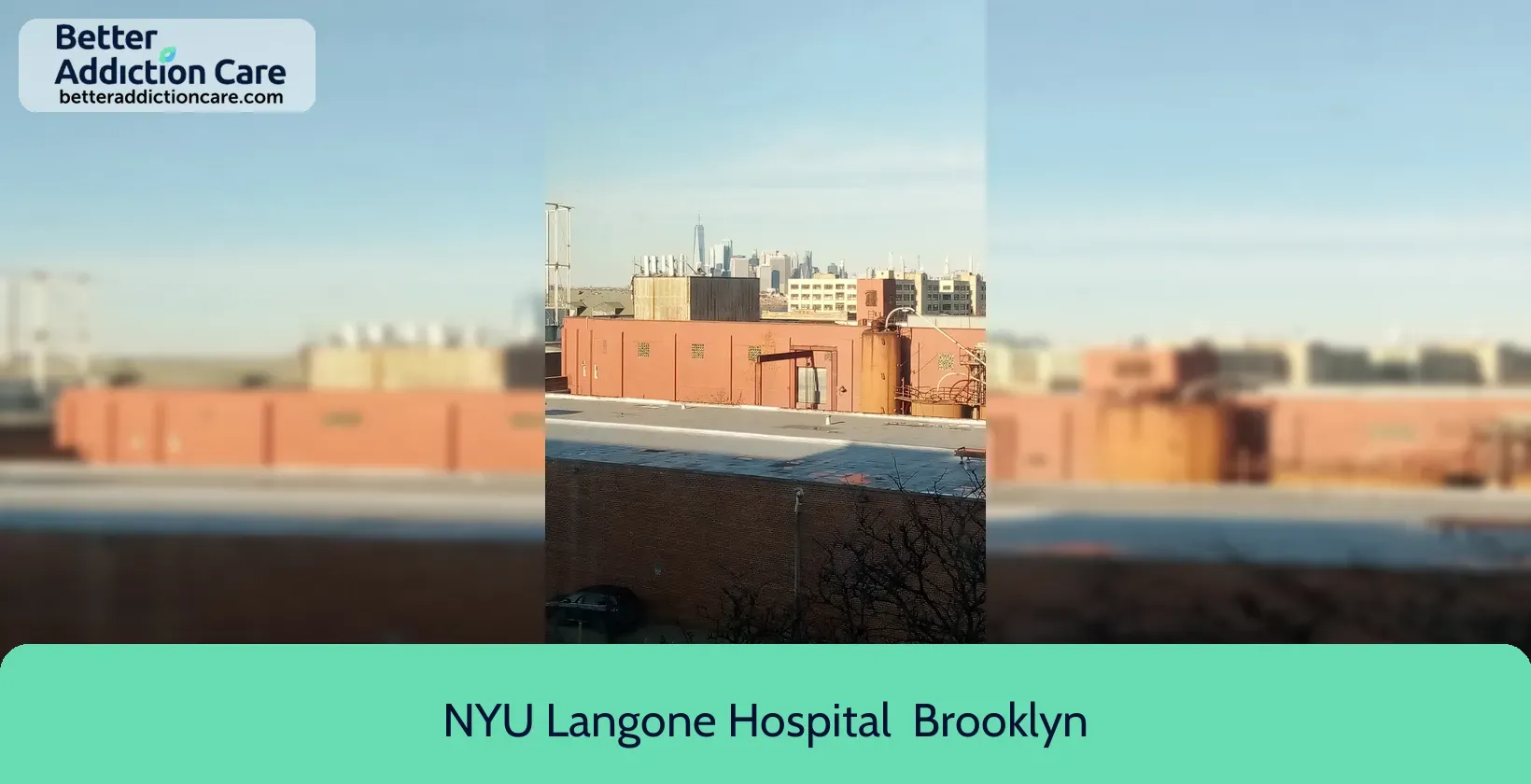NYU Langone Hospital - Brooklyn
Overview
NYU Langone Hospital - Brooklyn is a mental health treatment center for people seeking treatment near Kings County. As part of their treatment modalities for recovery, NYU Langone Hospital - Brooklyn provides group counseling, cognitive behavioral therapy, and integrated mental and substance use disorder treatment during treatment. NYU Langone Hospital - Brooklyn is located in Brooklyn, New York, accepting cash or self-payment for treatment.
NYU Langone Hospital - Brooklyn at a Glance
Payment Options
- Cash or self-payment
- Medicaid
- Medicare
- State-financed health insurance plan other than Medicaid
- Private health insurance
Assessments
- Screening for tobacco use
- Comprehensive mental health assessment
- Comprehensive substance use assessment
Age Groups
- Young adults
- Adults
- Seniors
Ancillary Services
- Case management service
- Chronic disease/illness management
- Court-ordered outpatient treatment
- Diet and exercise counseling
- Family psychoeducation
Highlights About NYU Langone Hospital - Brooklyn
6.65/10
With an overall rating of 6.65/10, this facility has the following balanced range of services. Alcohol Rehabilitation: 8.00/10, Treatment Options: 6.61/10, Drug Rehab and Detox: 6.00/10, Insurance and Payments: 6.00/10.-
Alcohol Rehabilitation 8.00
-
Treatment Options 6.61
-
Drug Rehab and Detox 6.00
-
Insurance and Payments 6.00
Treatment At NYU Langone Hospital - Brooklyn
Treatment Conditions
- Alcoholism
- Mental health treatment
- Substance use treatment
- Co-occurring Disorders
Care Levels
- Hospital inpatient/24-hour hospital inpatient
Treatment Modalities
- Group counseling
- Cognitive behavioral therapy
- Integrated Mental and Substance Use Disorder treatment
- Activity therapy
- Telemedicine/telehealth therapy
Ancillary Services
Languages
- Sign language services for the deaf and hard of hearing
- Spanish
- Other languages (excluding Spanish)
- Any Chinese Language
- Greek
Additional Services
- Pharmacotherapies administered during treatment
- Metabolic syndrome monitoring
Special Programs
- Clients with co-occurring mental and substance use disorders
- Persons 18 and older with serious mental illness (SMI)
Get Help Now
Common Questions About NYU Langone Hospital - Brooklyn
Contact Information
Other Facilities in Brooklyn

6.71

6.77

6.68

6.71

6.91

7.14

7.48

6.65
DISCLAIMER: The facility name, logo and brand are the property and registered trademarks of East NY Diagnostic and Treatment Center Behavioral Health, and are being used for identification and informational purposes only. Use of these names, logos and brands shall not imply endorsement. BetterAddictionCare.com is not affiliated with or sponsored by East NY Diagnostic and Treatment Center Behavioral Health.

